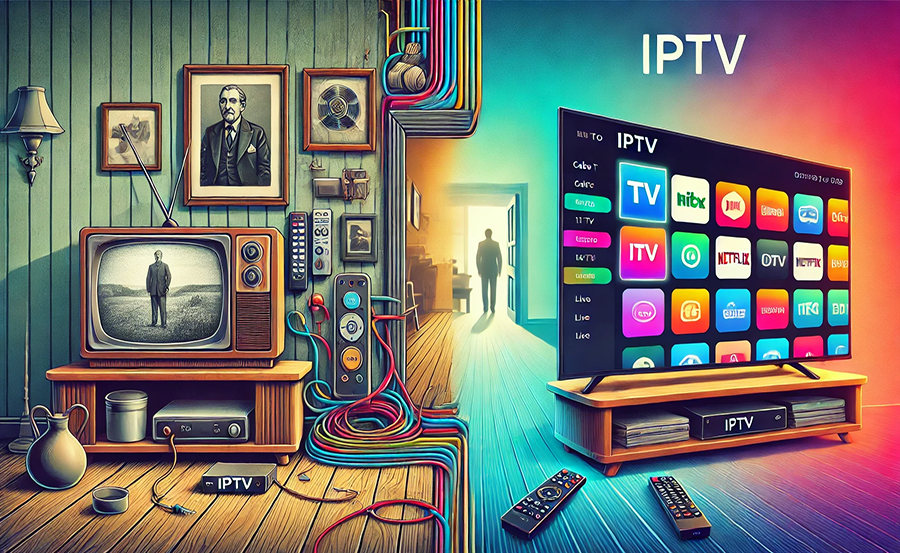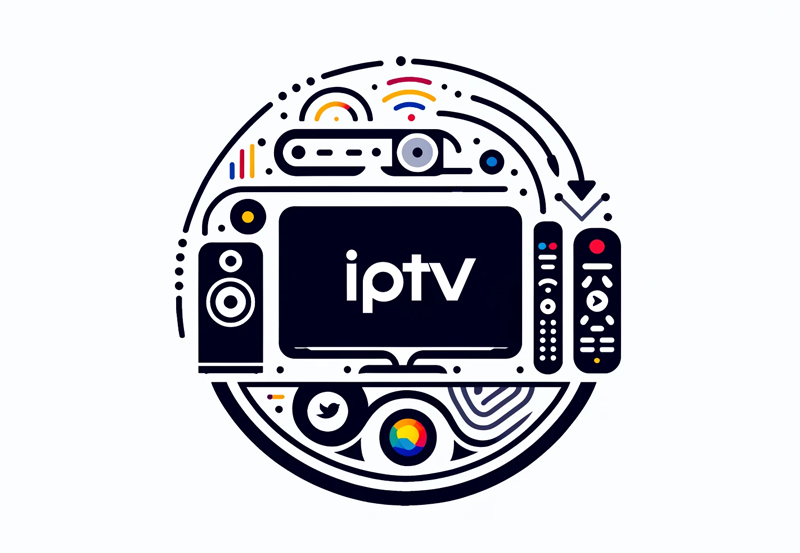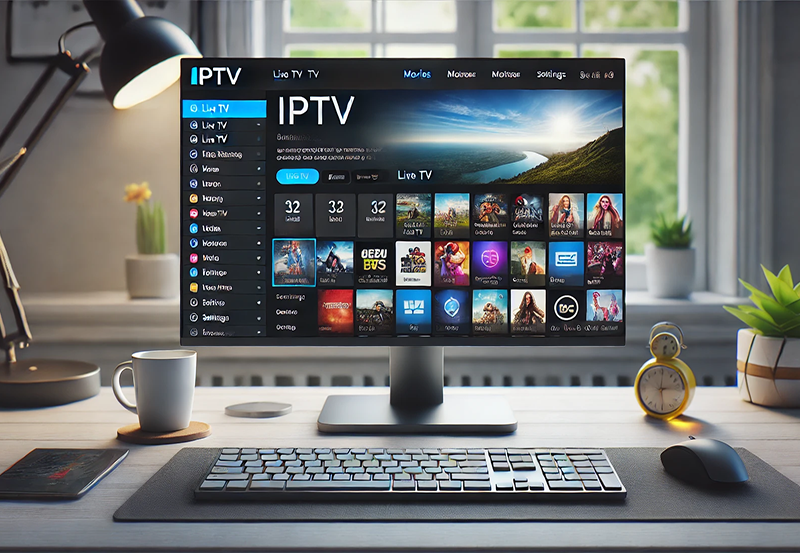In the fast-evolving world of entertainment, IPTV has emerged as a game-changer, providing a seamless blend of live TV, on-demand videos, and much more. While IPTV services are widely known for their compatibility with Android and smart TVs, a less explored yet promising domain is its integration with Linux systems. If you’re looking to revolutionize your IPTV adventure on Linux, you’ve come to the right place. This guide will walk you through everything you need to get started, from setup to optimization tips, ensuring you harness the power of Global IPTV services effectively.
Understanding IPTV: A Brief Overview
Internet Protocol Television, commonly known as IPTV, utilizes the internet to deliver television programming and other video content. Unlike traditional cable or satellite TV systems, it leverages packet-switched networks and enables users to stream media continuously. This method not only broadens viewing choices but also represents a shift from appointment television to on-demand entertainment services.
How IPTV Differs from Traditional Broadcasting
Traditional broadcasting relies heavily on fixed schedules and channel packages limiting viewers to specific times. In contrast, IPTV offers flexibility, allowing viewers to watch their favorite shows, movies, or live events whenever they wish. The content is streamed directly to the user’s device, bypassing the restrictions of traditional broadcasting models.
Expert Streaming Tip:
Stream the best content from the USA with Best IPTV for USA for unlimited entertainment options.
Components of a Robust IPTV System
An efficient IPTV setup entails three essential components: the service provider, a receiving device (such as a Smart TV, Android device, or computer), and a reliable internet connection. Together, these components deliver a smooth streaming experience that can be tailored to the user’s preferences.
Why Choose Linux for IPTV?
Linux, known for its stability and security, is a viable option for setting up an IPTV system. While it may not offer the same plug-and-play convenience as some other operating systems, Linux provides versatility and control to tech-savvy users who wish to customize their streaming experience.
Advantages of Linux Over Other Platforms
For those familiar with Linux, it’s apparent why enthusiasts prefer it for IPTV. From enhanced security to vast customization possibilities, Linux offers what other systems might lack. It supports a wide range of IPTV players and offers the flexibility to tweak settings for an optimal output.
Customizability and Performance
Linux’s open-source nature offers unmatched customizability, allowing users to create a tailored IPTV setup. Additionally, Linux systems are generally less resource-intensive, potentially leading to improved performance and lower lag compared to other platforms.
Setting Up IPTV on Linux: A Comprehensive Guide
Initial Setup Requirements
Before delving into the specifics of IPTV setup on Linux, ensure that you have all essential components. Here’s a checklist:
- A Linux-compatible device (desktop or server)
- Stable internet connection
- IPTV service subscription
- Installation of necessary IPTV software
Selecting the Right IPTV Software
The selection of IPTV software significantly impacts your viewing experience. Popular choices include VLC media player, Kodi, and Plex, each offering unique features and capabilities. Consider your technical comfort level and specific needs when choosing software.
Installing and Configuring IPTV Software
To get started, install your chosen IPTV software from the terminal or package manager. For instance, using a command line in Ubuntu for VLC would look something like this:
sudo apt update
sudo apt install vlcAfter installation, ensure the software is correctly configured to connect to your IPTV service. Usually, this involves inputting your M3U or similar playlist format provided by your IPTV service provider.
Troubleshooting Common Issues
Running into problems is common when setting up IPTV on Linux. Fortunately, most issues can be fixed with a bit of tweaking and patience. Here’s a look at some of the frequent hassles and how to resolve them.
Connectivity Problems
IPTV relies heavily on a stable internet connection. If you experience buffering or playback issues, first check your network settings. Resetting your router or switching to a wired connection can sometimes resolve such glitches.
Software Configuration Errors
Incorrectly configured software is another prevalent issue. Double-check your input settings, ensuring that the playlist or channel lists are correctly entered and properly formatted. Make adjustments as necessary.
Player Compatibility Issues
Not all media players fully support IPTV. If you encounter difficulty, consider switching to another player that is more compatible or updating your current player to the latest version.
Optimizing Your IPTV Experience on Linux
Enhancing Video Quality
While Linux can handle IPTV efficiently, enhancing video quality further depends on a few tweaks. Adjust your player’s settings to optimize display resolution and buffering speeds, ensuring a smoother viewing experience.
Adding Functionality with Plugins
Some IPTV software supports plugins, which can add valuable features. Explore plugin options that enhance usability, such as electronic program guides or cloud DVR functionalities, for an enriched IPTV experience.
Custom User Interface
Tinker with your player’s appearance and functionality to create a custom interface suited to your preferences. This might involve altering themes or reorganizing navigation to streamline your viewing sessions.
The Future of IPTV on Linux: Trends to Watch
The landscape of IPTV on Linux is continually evolving, spurred on by technological advancements and changing viewer demands. Staying abreast of these trends can help you make informed decisions and maximize your setup’s potential.
Blockchain and IPTV
The integration of blockchain technology into IPTV systems is a development that holds promise for enhancing security and transparency. By verifying content authenticity and reducing piracy, blockchain could significantly impact IPTV’s future landscape.
AI and Personalization
Artificial intelligence is gradually being incorporated into IPTV systems to offer personalized viewing experiences. Expect future IPTV platforms to provide tailored recommendations and smart content curation to enhance user engagement.
5G and Enhanced Streaming
The advent of 5G technology is set to revolutionize how IPTV content is consumed, promising faster connections and higher-quality streams. It’s poised to mitigate current latency issues and improve user satisfaction over broadband networks.
Frequently Asked Questions

What is the best IPTV software for Linux?
Choosing the best IPTV software for Linux often depends on your personal preferences. VLC, Kodi, and Plex are popular options, each offering distinct features that cater to different needs.
Can IPTV for Android be used on Linux?
Generally, IPTV services designed for Android can be adapted for use on Linux systems. However, you may need to install compatible software or applications that can fully support the service.
Do Global IPTV services work seamlessly on Linux?
Many global IPTV services are compatible with Linux, provided the correct software is used. Ensure your chosen service supports Linux operating systems and check for any specific setup instructions.
How can I improve IPTV streaming quality on Linux?
To enhance IPTV streaming quality on Linux, ensure a fast and stable internet connection, optimize software settings for video quality, and utilize any applicable plugins or extensions that may improve performance.
What should I do if my IPTV keeps buffering on Linux?
Persistent buffering can often be resolved by checking network stability, ensuring adequate internet bandwidth, and verifying that your IPTV software is correctly configured. Adjusting software settings may also help alleviate buffering issues.
Are there privacy concerns with using IPTV on Linux?
Like any online service, privacy is a consideration when using IPTV. Use a VPN to protect your data and privacy. Ensure your software is updated to mitigate security vulnerabilities.
Embarking on your IPTV journey on Linux can seem daunting, but with the right guidance and resources, it offers a rewarding and enriched viewing experience. Explore, experiment, and adapt your setup to fully embrace the potential of IPTV, keeping your viewing habits both secure and highly customized.
Optimizing IPTV Playback on VLC for Better Video Quality





